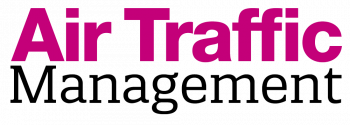Nearly three out of four Canadians want to see development of the eVTOL industry with Canada targeting a world leading role.
New research (1) shows growing support for the development of air taxi services in Canada to help the country seize opportunities to create jobs and boost revenue, while also helping the environment. The nationwide study by Horizon Aircraft, a Canadian-based innovative leader in hybrid electric Vertical Take-off and Landing (eVTOL) aerial vehicles, found 73% of Canadians support the development of the air taxi and eVTOL industry.
Nearly four out of five (78%) would be happy to fly in them once they are commercially operational. Just 7% say they would never use an eVTOL, while 15% are currently undecided. A major reason driving support for the industry is the potential to create jobs and boost the Canadian economy while also helping cut greenhouse gas emissions by reducing traffic congestion.
Industry data (2) shows the global air taxi and urban air mobility industry is forecast to see revenues grow from $2.3 billion in 2021 to as much as $30.7 billion by 2031, with more than 430,000 air taxis operating worldwide.
The research by Horizon, which has developed an innovative hybrid eVTOL that flies most of its mission exactly like a normal aircraft, found 75% of Canadians believe the jobs boost for Canada should increase Government support for the sector, while 68% want the Government to target becoming a world leader in eVTOL development.
Nearly seven out of 10 (69%) of Canadians believe the country’s geography and landmass give it major advantages over other countries and present a compelling case for developing a strong eVTOL market. Around 74% believe using eVTOLs will benefit urban areas by cutting traffic congestion and its impact on the environment.
Brandon Robinson, CEO of Horizon Aircraft, said, “The eVTOL market is expanding rapidly and will soon be a major global industry, which Canada can become a world leader in. “We already have strong support from regulators and the Government, and public support is increasing as people see the opportunities to create jobs and generate revenue to support the economy while also benefiting the environment.”
Horizon Aircraft is building a new hybrid electric Vertical Takeoff and Landing (eVTOL) aircraft that will be used by business aviation travellers as early as 2026. Their “Cavorite X5” is an eVTOL built for longer-range regional passenger or cargo, as well as special missions. It will take off and land vertically like a helicopter but will fly almost twice as fast at a fraction of the cost. It will have a maximum passenger capacity of four plus a pilot, a payload of 500 kg (1,100 lb), and an average range of 800 km (500 miles) with full fuel reserves.
Horizon’s innovative approach and technology allows its Cavorite X5 to fly 98% of its mission in a very low-drag configuration like a traditional aircraft. Flying most of the time as a normal aircraft is also safer and should make the aircraft easier to certify than other radical new eVTOL designs. The full-scale aircraft will also be powered by a hybrid electric system that can recharge the battery array in-flight while providing additional system redundancy. Continued rigorous testing of its 50%-scale aircraft will reduce technical risk moving forward as Horizon continues development of its full-scale aircraft. Horizon Aircraft, and its flagship Cavorite X5 design, has been attracting significant interest from within the industry having won several grants, a US Department of Defence advanced research and development contract award, and being ahead of its competitors with its large-scale prototype already flying.
(1) Study conducted in May 2023 by independent research agency Pure Profile among a nationally representative sample of 1,000 Canadians aged 18-plus, which included 203 who currently live in or have lived in a remote area of Canada
(2) Urban Air Mobility (UAM) Market to Reach $30.7 Billion, Globally, by 2031at 30.2% CAGR: Allied Market Research
